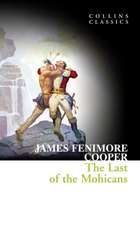Moby Dick
Autor Herman Melvilleen Limba Engleză Paperback – 20 oct 2016
Preț: 176.14 lei
Nou
Puncte Express: 264
Preț estimativ în valută:
33.71€ • 35.10$ • 28.49£
33.71€ • 35.10$ • 28.49£
Carte tipărită la comandă
Livrare economică 06-12 martie
Preluare comenzi: 021 569.72.76
Specificații
ISBN-13: 9786068877075
ISBN-10: 6068877078
Pagini: 562
Dimensiuni: 146 x 213 x 32 mm
Greutate: 0.66 kg
Editura: SC Active Business Development SRL
ISBN-10: 6068877078
Pagini: 562
Dimensiuni: 146 x 213 x 32 mm
Greutate: 0.66 kg
Editura: SC Active Business Development SRL
Descriere
Descriere de la o altă ediție sau format:
Ishmael, the narrator, announces his intent to ship aboard a whaling vessel.
He has made several voyages as a sailor but none as a whaler. He travels to New Bedford, Massachusetts, where he stays in a whalers' inn. Since the inn is rather full, he has to share a bed with a harpooner from the South Pacific named Queequeg. At first repulsed by Queequeg's strange habits and shocking appearance (Queequeg is covered with tattoos), Ishmael eventually comes to appreciate the man's generosity and kind spirit, and the two decide to seek work on a whaling vessel together.
Notă biografică
Herman Melville (born Melvill;[a] August 1, 1819 - September 28, 1891) was an American novelist, short story writer and poet of the American Renaissance period. Among his best-known works are Moby-Dick (1851), Typee (1846), a romanticized account of his experiences in Polynesia, and Billy Budd, Sailor, a posthumously published novella. Although his works were not widely appreciated at the time of his death, the centennial of his birth in 1919 was the starting point of a Melville revival in which critics re-evaluated his work and his novels became recognized as world classics. Melville was born in New York City, the third child of a prosperous merchant. His formal education ended abruptly after the death of his father in 1832 left the family in financial straits. He took to sea in 1839 as a common sailor on a merchant ship and then on the whaler Acushnet but jumped ship in the Marquesas Islands. Typee, his first book and its sequel, Omoo (1847) were travel-adventures based on his experiences there. Their success gave him the financial security to marry Elizabeth "Lizzie" Shaw, a daughter of a prominent Boston family. His first book not based on his own experience, Mardi (1849), was not well received. His novels Redburn (1849) and White Jacket (1850) were given better reviews but did not provide financial security. Moby-Dick (1851), although now considered one of the great American novels, was not well received by contemporary critics. His psychological novel, Pierre: or, The Ambiguities (1852) was also scorned by reviewers. From 1853 to 1856, Melville published short fiction in magazines, which was collected in 1856 as The Piazza Tales. In 1857, he traveled to England and then toured the Near East, and that same year published his last work of prose, The Confidence-Man (1857). He moved to New York in 1863 to take a position as Customs Inspector. From that point, he focused his creative powers on poetry. Battle-Pieces and Aspects of the War (1866) was his poetic reflection on the moral questions of the American Civil War. In an emotionally jarring incident, in 1867, his eldest child Malcolm died at home from a self-inflicted gunshot. Melville's metaphysical epic Clarel: A Poem and Pilgrimage in the Holy Land was published in 1876. In 1886, his other son Stanwix died of apparent tuberculosis, and Melville retired. During his last years, he privately published two volumes of poetry, left one volume unpublished, and returned to prose of the sea. The novella Billy Budd was left unfinished at his death but was published posthumously in 1924. Melville died from cardiovascular disease in 1891.
Caracteristici
New edition of one of the most popular classics of American Literature
Recenzii
Strange, original and gripping.
One of the strangest and most wonderful books in the world.
One of the strangest and most wonderful books in the world.
Textul de pe ultima copertă
“Call me Ishmael.”
Thus begins one of the most famous journeys in literature—the voyage of the whaling ship Pequod and its embattled, monomaniacal Captain Ahab. Ishmael quickly learns that the Pequod’s captain sails for revenge against the elusive Moby Dick, a sperm whale with a snow-white hump and mottled skin that destroyed Ahab’s former vessel and left him crippled. As the Pequod sails deeper through the nights and into the sea, the divisions between man and nature begin to blur—so do the lines between good and evil, as the fates of the ship’s crewmen become increasingly unclear....
Melville’s classic tale of obsession and the sea, one of the most important and enduring masterworks of nineteenth-century literature, Moby Dick is a riveting drama, exploring rage, hope, destiny, and the deepest questions of moral truth.
Thus begins one of the most famous journeys in literature—the voyage of the whaling ship Pequod and its embattled, monomaniacal Captain Ahab. Ishmael quickly learns that the Pequod’s captain sails for revenge against the elusive Moby Dick, a sperm whale with a snow-white hump and mottled skin that destroyed Ahab’s former vessel and left him crippled. As the Pequod sails deeper through the nights and into the sea, the divisions between man and nature begin to blur—so do the lines between good and evil, as the fates of the ship’s crewmen become increasingly unclear....
Melville’s classic tale of obsession and the sea, one of the most important and enduring masterworks of nineteenth-century literature, Moby Dick is a riveting drama, exploring rage, hope, destiny, and the deepest questions of moral truth.


















